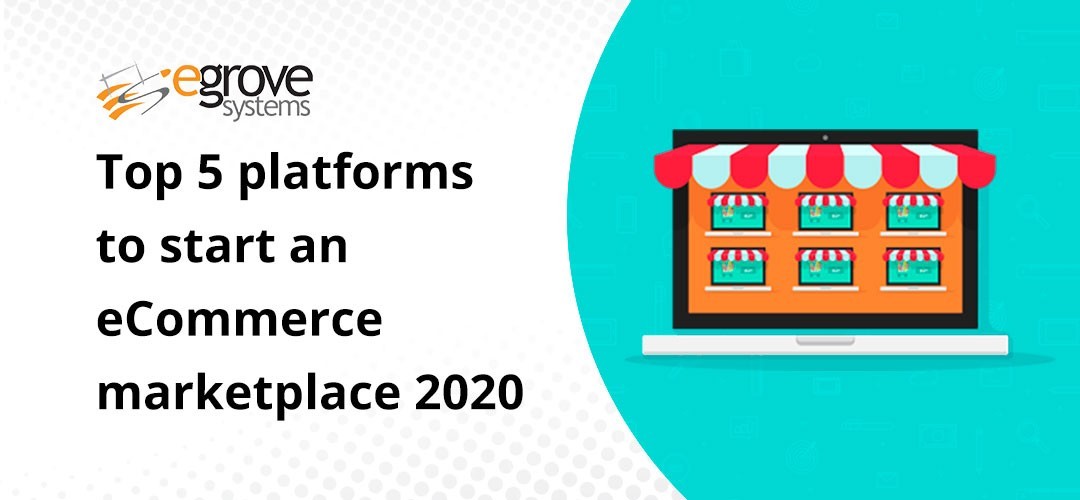When you start an online business, your objective should be creating a website that is interactive and user-friendly. To do so, you will have to select an eCommerce platform that helps you do these with ease. You will have to select a platform that has features ideal for your particular business vector. Additionally, you will also have to choose a platform that meets your budgetary constraints. Thus, there are several factors that you should take into consideration before you select a particular eCommerce platform to develop your company’s online business. Some of the best eCommerce platforms that you can choose from are as follows:
Magento
This is a popular open-source eCommerce platform that was launched in 2005. This platform is ideal for small and medium scale businesses. Since it is an open-source platform, you will not have to pay for the Magento Open Source Community Edition. You will get facilities like integrated checkout, payment and shipping mobile-optimized shopping, global selling, and catalogue management. If you are opting to expand your business, go for Magento Commerce, as this will give you access to the much more extensive library of the platform. This platform is ideal if your business vector is aligned to consumer goods like beauty products, fashion, and furnishings.
Pros
- Feature-rich and powerful platform
- SEO-friendly
- Flexible content management
Cons
- Need some technical knowledge
- Capital costs required
Woo Commerce
WooCommerce comes with a myriad of features like mobile-optimized shopping, GPS support, catalogue and inventory management, shipping options and calculator, SEO services, and many more such facilities. When it comes to eCommerce marketplace development Woo Commerce allows you to customize and progress. It supports Google Analytics and other third-party integrations if you want to evaluate the performance of your online business. WooCommerce is utilized by around 4.9 per cent of all the websites.
Pros
- Ease of customization
- Presence of multiple plugins
- Less cost to get started
Cons
- Need to keep the core code
- Frequent updates required
Read also : Benefits of Developing eCommerce Marketplaces
Shopify
Shopify, like Magento, was started as an open-source platform in the year 2004. It supports multiple consumer verticals like sale of beauty products, home furnishing items, food, beverages etc. You can create your online business with Shopify’s help, free of charge, without sharing your credit card details during the fourteen-day trial period. The platform has features like an unlimited listing of products, customization of domains, inventory tracking, and numerous themes and templates.
Being a codeless platform, it is easy to develop a website using Shopify. It also provides analytics like dashboard, Google Analytics, and referral reports to evaluate your website’s performance. It is estimated that around 87 per cent of merchants make use of the Shopify app.
Pros
- Ease of set up
- No technical worries
- Secure & reliable
Cons
- Some cost involved
Bigcommerce
The Bigcommerce platform was started in 2009. When it comes to multi-vendor marketplace development, Bigcommerce can be helpful because it allows you to customize the domains with unlimited product listings and unlimited bandwidth with file storage and also support multi-currency sales. So you can sell your products anywhere across the globe. Bigcommerce also provides analytics through the standard dashboard and third-party plugins. This is important to get an understanding of the performance of your company’s online business.
Pros
- No transaction fees
- Built-in product functionality
- Great SEO features
Cons
- Some costs required
- Limits on annual online sales
Wix
Wix is a cloud-based eCommerce platform that makes it easy for you to make your website. With Wix, you will get facilities like product galleries, various shipping options, inventory management, and abandoned car recovery. Moreover, it also provides you with Google Analytics Integration and In-App Analytics, which will make it easier for you to evaluate your company’s online business performance.
Pros
- Upgraded design templates
- Intuitive interface
- Great speed
Cons
- Lack of proper SEO
- No unlimited plans
Thus, when you create a website for your company, you must take into consideration the features of the individual eCommerce platform and select one that meets your requirements. Additionally, you should ensure that it supports the business vectors of your business. In other words, if you are in a consumer-centric business, select a platform designed for such companies. This will ensure that your website is ideal for customers looking to make purchases for direct consumption or usage.


